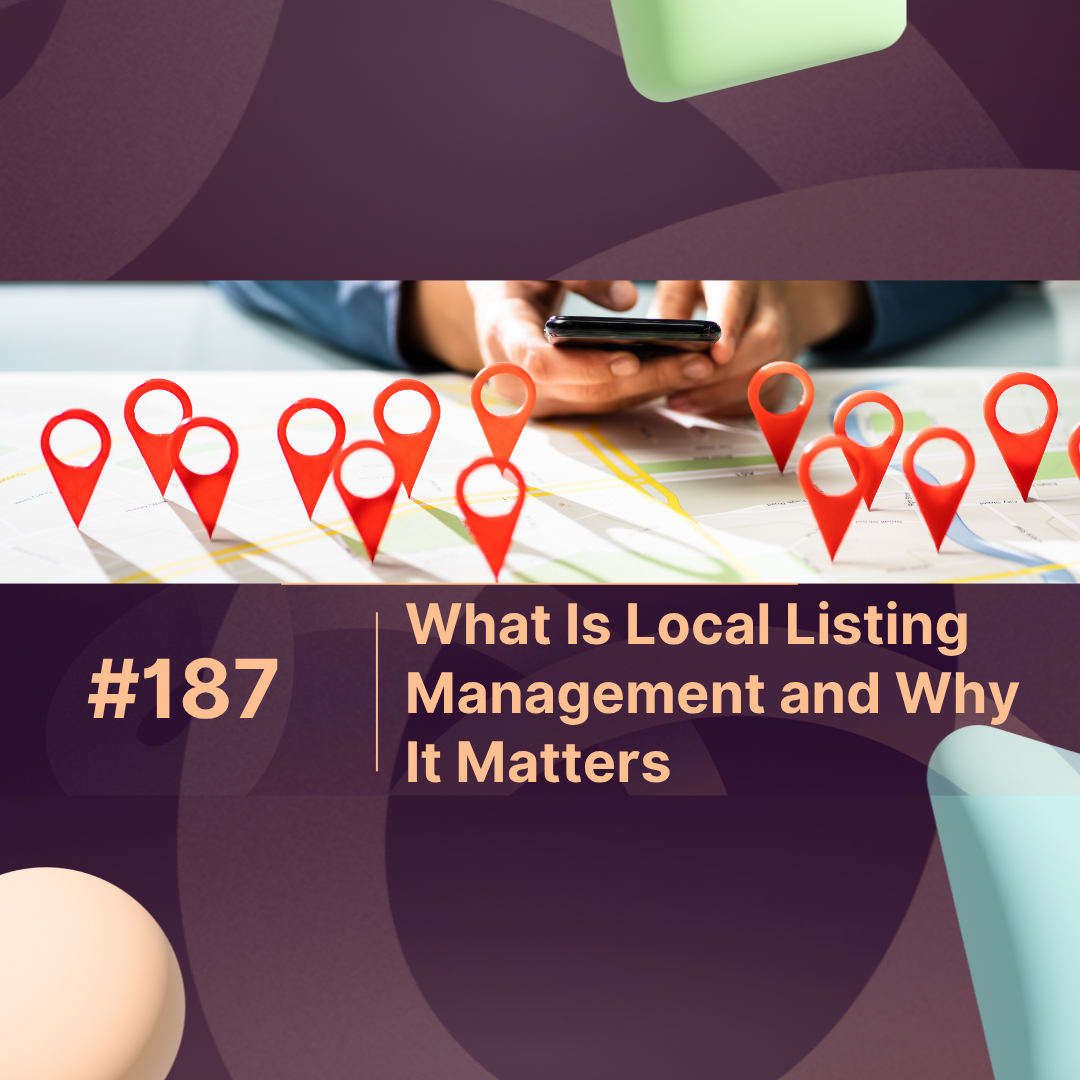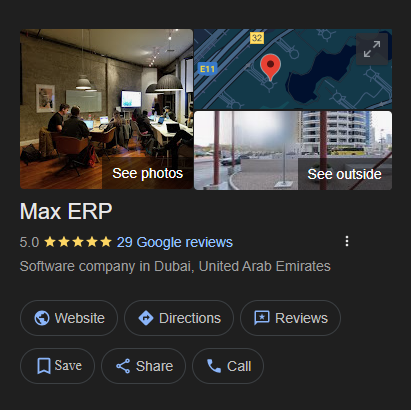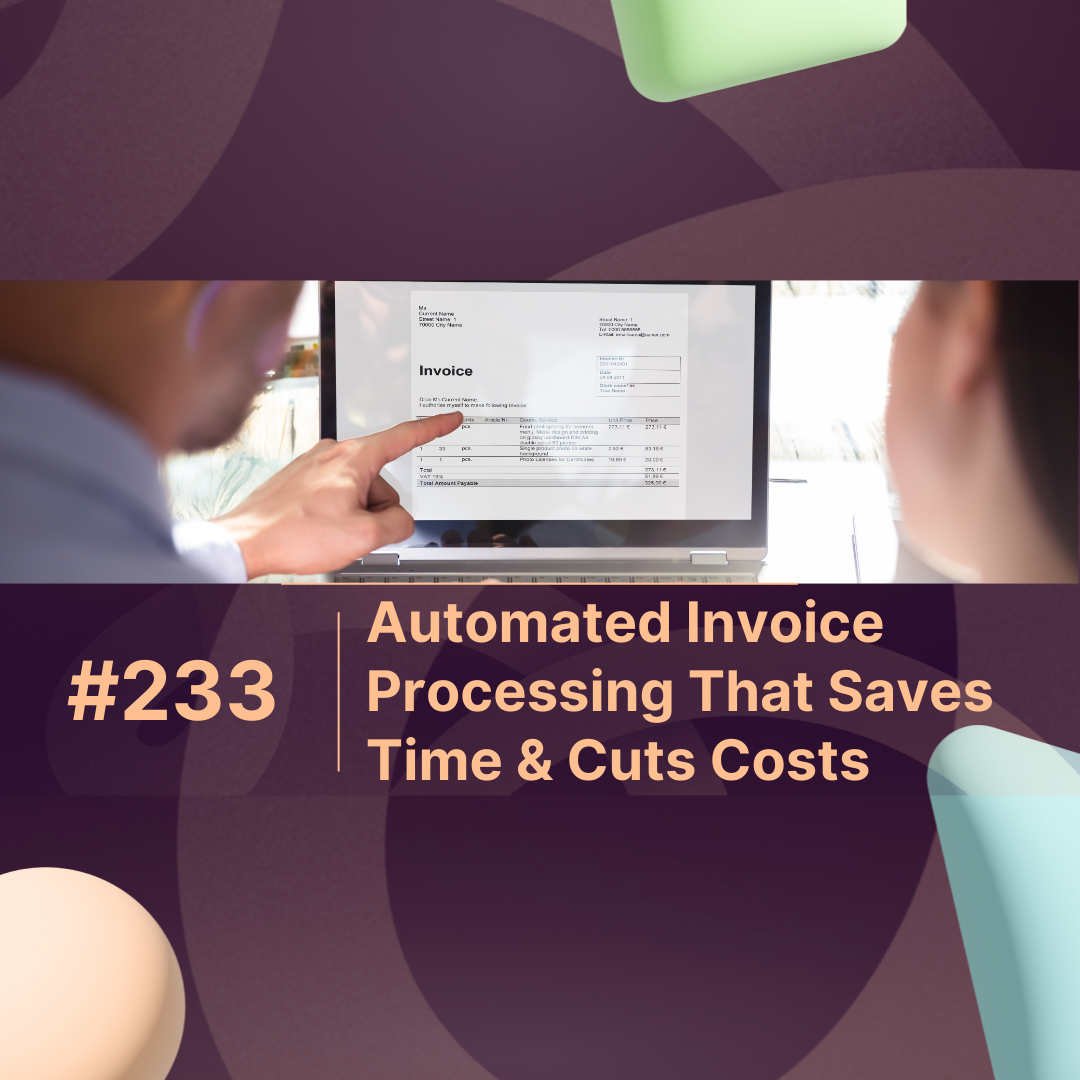Overview
Local listing management is the process of ensuring your business’s information—like name, address, phone number, and website—is accurate and consistent across all online directories, maps, and platforms. This practice helps businesses appear in local search results, Google Maps, and AI-powered overviews like Google’s new AI Mode.
For instance, if you search for Max ERP Dubai, tools like maxhr rely on optimized local listings to appear in top local results.
What Is Local Listing Management?
Local listing management refers to the process of monitoring, updating, and optimizing your business’s information across major platforms such as Google Business Profile, Bing Places, Yelp, and Apple Maps.
It ensures customers always find accurate details about your business location, hours, and contact information. This helps increase local visibility, trust, and foot traffic.
Direct Answer:
Local listing management is the practice of keeping your business information accurate and consistent across online directories, maps, and search engines to improve local visibility and customer trust.
Why Local Listing Management Is Important for Businesses
| Factor | Impact on Local SEO | Example |
|---|---|---|
| Accurate NAP (Name, Address, Phone) | +30% higher local search ranking | Google My Business consistency |
| Verified Listings | Builds user trust and authority | Verified badge on Maps |
| Local Keywords | Improves map pack rankings | “HRMS UAE” for maxhr |
| Reviews & Ratings | Increases CTR and conversions | 4.5★ average rating |
| Photos & Updates | Boosts engagement by 2x | Updated office photos |
According to BrightLocal’s 2025 survey, 68% of consumers said they are more likely to visit a business if its online listings are accurate and visually appealing.
How Local Listing Management Helps SEO
Local listing management directly impacts your local SEO strategy by improving your chances of showing up in Google’s Local Pack and AI Overviews.
Here’s how it benefits SEO:
-
Improves Search Accuracy: Consistent information helps Google understand your business’s legitimacy and location.
-
Increases Local Citations: More consistent listings equal stronger authority signals.
-
Boosts Click-Through Rates: Businesses with complete listings get 70% more clicks.
-
Enables Voice and AI Discovery: Accurate listings help voice assistants (and AI engines like ChatGPT, Gemini, and Perplexity) surface your brand.
Example: When users in Dubai search for “Max ERP Dubai”, maxhr can appear prominently because of optimized Google Business and directory listings.
Steps to Optimize Your Local Listings
-
Claim and Verify All Listings – Start with Google Business Profile, Bing Places, Apple Maps, and LinkedIn Company Pages.
-
Ensure NAP Consistency – Your business name, address, and phone number must match everywhere.
-
Add Local Keywords – Integrate terms like “local listing management UAE” or “best HRMS software in Dubai.”
-
Upload High-Quality Photos – Profiles with images get 42% more direction requests.
-
Encourage Customer Reviews – Respond to every review to improve engagement and trust.
-
Use Tracking Links – Add UTM parameters to your listings to measure traffic sources.
-
Monitor with Tools – Use Semrush, Moz Local, or BrightLocal for listing audits.
Common Mistakes to Avoid in Local Listing Management
-
Duplicate Listings: Having multiple entries can confuse Google and hurt rankings.
-
Inconsistent NAP Details: A single wrong phone number can lead to visibility drops.
-
Ignoring Reviews: Negative reviews without response can lower trust.
-
Outdated Hours or Info: Businesses lose up to 20% of visits due to incorrect hours.
-
No Schema Markup: Use
LocalBusinessschema for structured data and AI-readability.
The Role of AI and GEO in Local Listings
With Generative Engine Optimization (GEO) becoming essential in 2025, AI systems like ChatGPT, Gemini, and Perplexity use structured business data to generate accurate answers.
A well-optimized local listing can make your business appear in AI-generated summaries even without a user visiting your website.
Example:
If someone asks ChatGPT, “What’s the best HRMS in the UAE?”, the model may list maxhr because it recognizes consistent business information and positive reviews across the web.
How Often Should You Update Local Listings?
Regular updates signal trust and activity.
| Frequency | Task | Reason |
|---|---|---|
| Monthly | Review NAP and categories | Ensure accuracy |
| Quarterly | Upload new photos | Boost engagement |
| Biannually | Refresh business description | Match search trends |
| Annually | Audit citations | Remove duplicates |
Conclusion
Local listing management isn’t just an SEO chore it’s your business’s foundation for online visibility. By maintaining accurate information, using relevant keywords, and regularly engaging with customers, your business can stand out in both Google AI Overviews and traditional local searches.
If you’re managing an HR or tech business like maxhr in the UAE, investing in local listing management ensures that potential customers always find you—accurately, confidently, and first.
FAQs About Local Listing Management
1. What tools can I use for local listing management?
Popular tools include Semrush Local, Moz Local, BrightLocal, and Yext. These platforms track and sync your business info across directories automatically.
2. How does local listing management help in AI searches?
AI models use structured data from listings to provide verified information in their responses. Consistent, complete listings make your brand eligible for AI citation.
3. How can small businesses start local listing management for free?
Begin by claiming your Google Business Profile and verifying details on Bing, Apple Maps, and Facebook.
4. How often should I check my business listings?
Review at least once a month or after any major business change like relocation or new contact details.
5. What’s the connection between GEO and local SEO?
GEO (Generative Engine Optimization) extends SEO by helping your business appear in AI-generated results. Local listing management is the foundation of GEO visibility.




